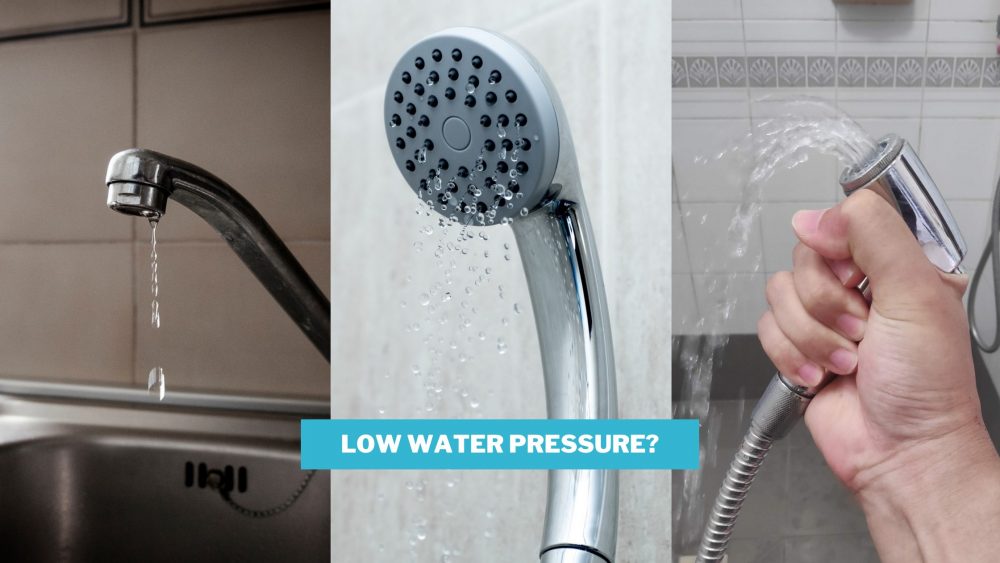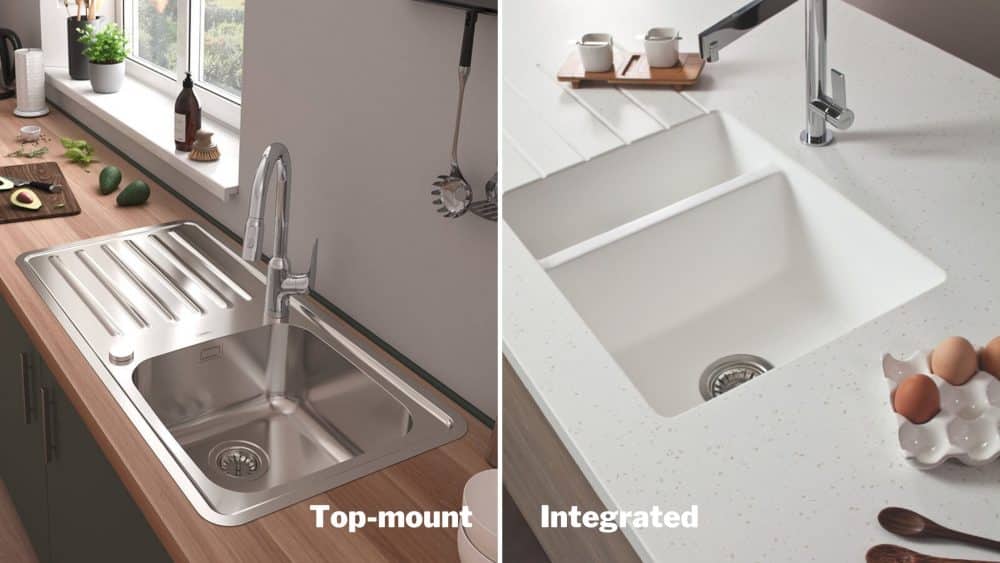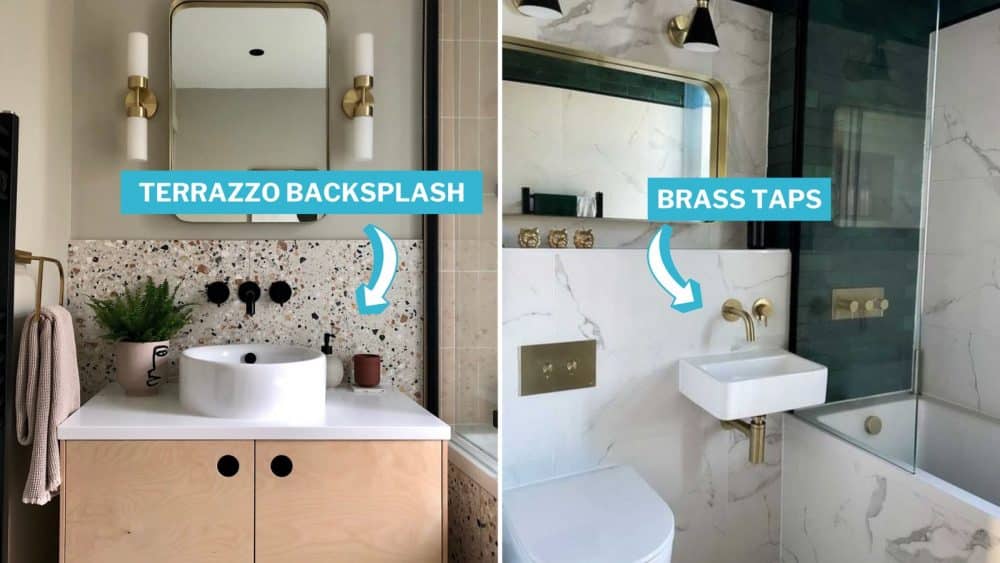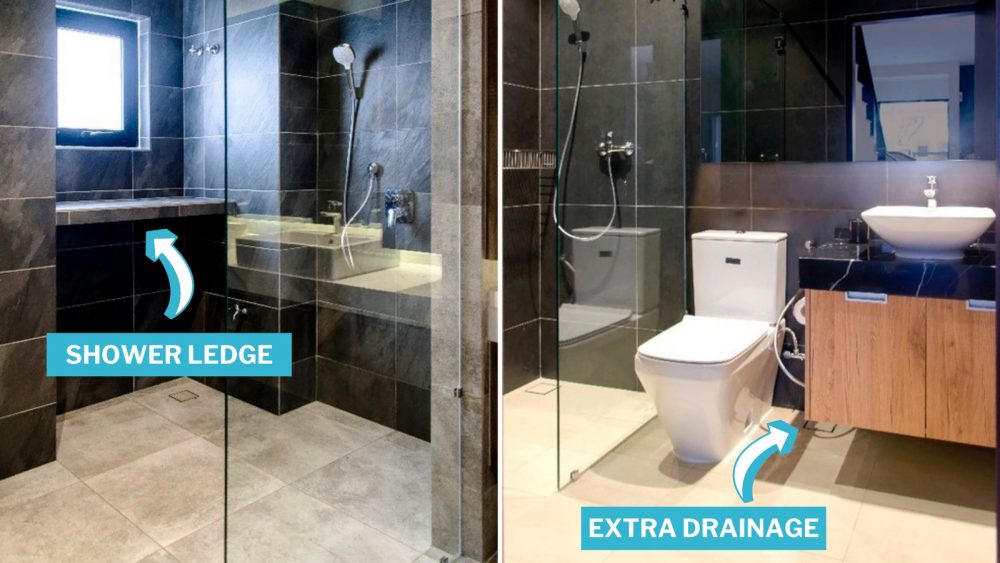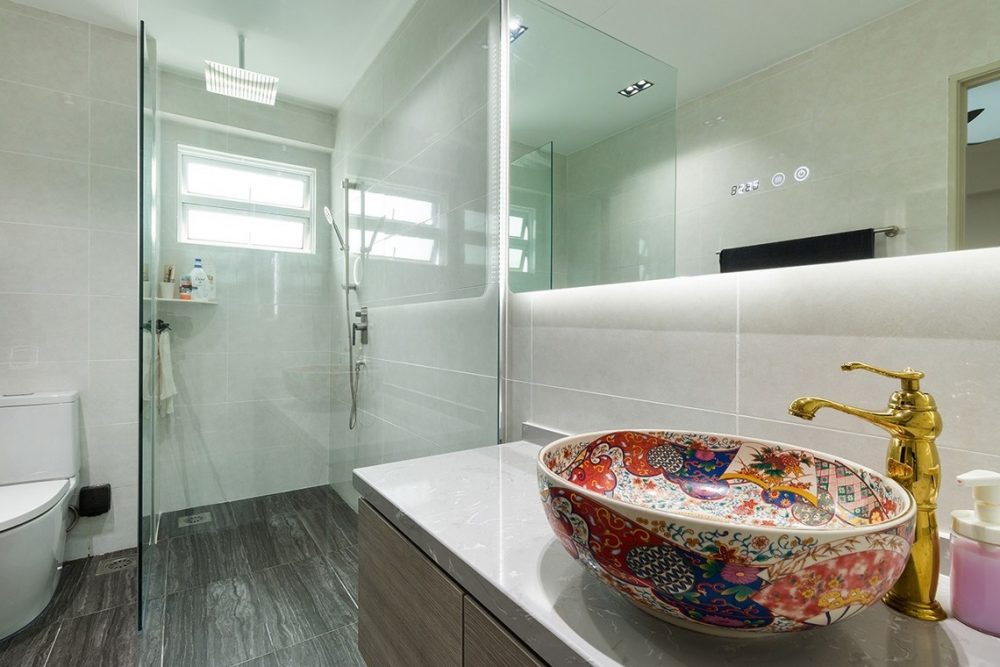Have you realised what a nightmare it is to do your daily tasks when your home water pressure is low?
For example, it takes longer to wash out every bit of shampoo and conditioner from your hair. It also takes longer to fill the washing machine. So, water pressure matters, especially when it comes to keeping a household moving promptly.
But before you hop on a call with a plumber, you should narrow down the possibilities of why you’re experiencing low water pressure in the first place. This way you’ll be able to gauge if it’s as simple as having a plumber install a water pressure pump, or something a lot more serious needs to be fixed.
How to detect low water pressure in your house?
How do you tell if your house really has low water pressure, or it’s actually a problem with a single tap? Here are a few signs to look out for:
- Your everyday tasks such as watering the plants, showering, washing dishes, cooking, cleaning, etc are being affected by the amount of water coming through the faucets of your garden hose, kitchen sink and showerhead.
- There’s a drop in water pressure when you have two different points of water turned on, like the downstairs bathroom sink and the kitchen sink.
- The water pressure is low at all taps, equally. This is regardless of whether one or more water fixtures are turned on at the same time. If you get low water pressure at just one tap, you should make sure it doesn’t have a clogged filter. If it’s connected to a rubber hose, make sure the hose is not bent or kinked.
Keep in mind that it’s standard in Malaysia for residential water pressures to have a fixed range of 45 to 55 psi. If yours is at a lower psi than that, it’s considered not ideal and you’ll be experiencing very poor water pressure. If the psi is higher than the fixed range then you run the risk of the piping bursting.
Now, that you are sure your home is facing water pressure issues, it’s time to figure out what are the possible reasons for it. It might be something that you can do on your own or something your water supplier needs to fix or an issue only a plumber can handle.
What’s causing your low water pressure?
1. Low Supply From Your Local Water Service Provider
In Malaysia, especially those in Selangor have faced many water disruptions, due to various reasons, from pipes bursting to the contamination of the water supply. These water issues often result in low water pressure to no water for hours, if not days. Residents are given notice ahead of time for scheduled water supply upkeeps but at other times water disruptions happen at random, causing you to wonder what’s the issue.
Low water pressure can also be due to water theft. In fact, in 2020, it was estimated that 30% of water in commercial areas was being illegally siphoned off. This can cause a drop in water pressure for others.
If you’re realising a dip in water pressure for no apparent reason, make sure to check your local water supplier’s website for updates. Or, ask your neighbours to see if they are facing similar issues. If low water pressure is affecting everyone in your area, you won’t be able to do much but sit around and wait for the problem to be fixed, hoping that it’ll only take a few hours.
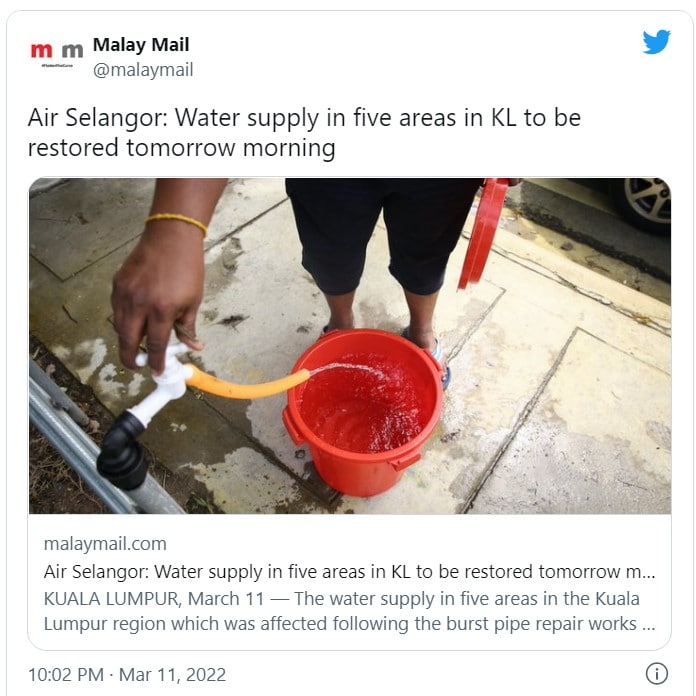
2. Multiple Faucets Are Turned On at Once
If you have many family members, and everyone is at home and using water at the same time, your water pressure will go down. If your home’s psi is in the lower range of the fixed 40 to 80 psi, or if your water pressure pump isn’t that strong, the water flow can slow down to a trickle during peak hours in your home.
The best solution would be to get a plumber to install a water pressure pump for a higher flow of water into your home. This way, the water pressure in your home won’t dip so low that it will affect tasks when everyone is home.
3. The Main Valve Might Not Be Fully Opened
If your whole house is experiencing low water pressure, and not just when two or more facets are turned on, you’ll want to check if the main valve is opened all the way. The best way to identify if it’s an issue with the valve is with the kitchen sink, as the main will supply water to the kitchen first before making its way up to the roof’s water tank.
The main shut-off valve that controls the water flow into your home will be where the meter is, located in or just outside or near the edge of your property close to the street. If the valve is partially or fully turned off for some reason, it will cause low water pressure. In some residential estates, your main water valve might be exposed to the public, and some naughty neighbourhood kids may find it amusing to regularly turn down your valve. Just turn it back on full to get full water pressure again.
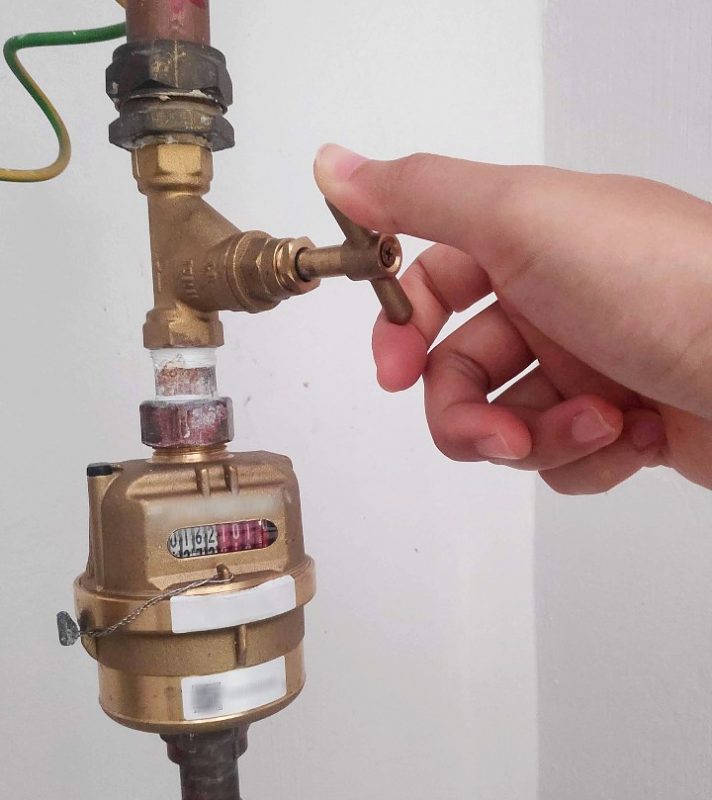
4. Clogged Piping
Clogged piping might have been your first guess as to what could be causing low water pressure. It’s known that mineral or dirt build-up in pipes will eventually lead to clogged pipes that slow down water pressure. However, it’s not exactly easy to pinpoint where exactly are the clogged pipes or how bad the damage could be.
A good indicator if clogged pipes are the source behind your water pressure issue is to turn on a faucet and see if at first water pressure is normal before it noticeably lowers in pressure. If this is the case, then you’ll want to get in touch with a professional plumber to work on your pipes, it’s highly recommended that you don’t attempt to work on pipes on your own.
5. Corroded Piping
If your home is an older build, that would mean it most likely has galvanized steel pipes that corrode faster than the ones we use today. Your water pressure issues might be due to corroded piping. The piping lines running inside the walls of your home may have corroded to the point where water can’t flow properly.
Corroded piping is a much more serious issue than a clogged pipe, this is because your home’s entire system of piping can become corroded and will need to be completely replaced, or else it will contaminate your water. You’ll need to get in touch with a plumber as soon as possible.
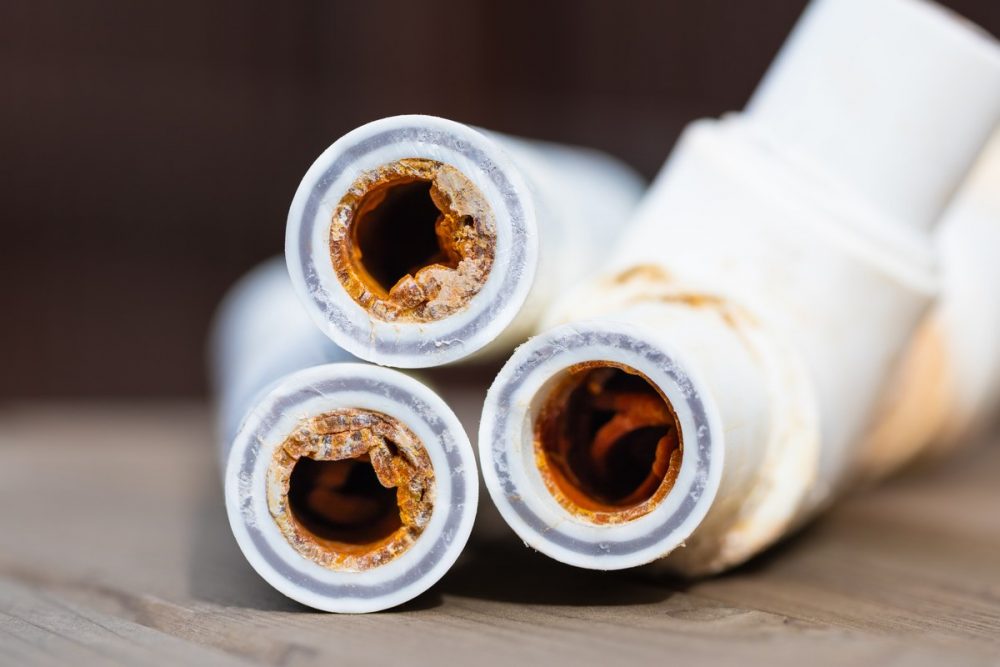
6. Leaks
Leaks are a lot easier to spot, especially when you suspect it might be the reason for low water pressure. Look for wet spots on the ceiling or the walls, this is an accurate indicator if there’s a crack in your piping that is causing water to leak out. Once you’ve located the area, call a professional plumber to fix the leaks.
In a landed home, you should also check to make sure the pipes are not leaking water into your garden (which can be difficult to spot). Turn off all your taps, then see if your water meter keeps turning. This could indicate a leak somewhere.
7. Faulty Fixtures
It’s not always the valve or the piping to look to for water pressure issues, the truth is that the fixtures you’ve had installed for sinks, bidets, or shower heads could have some problems. The seal around your kitchen faucet could be worn out, for example. Or your shower mixer could be incorrectly installed. If you note water pressure is low with only one or two faucets then faulty fixtures could very well be the cause.
You can call a plumber or carefully remove the fixtures on your own. Once you’ve removed them take time to assess the condition of the fixtures, some might need to be cleaned, while others will need to be replaced.
8. You have a storage-tank water heater
A water heater with a storage tank is normally installed in your ceiling above the bathroom or kitchen. It has a limited capacity, such as 50 or 80 litres. And if it’s connected to multiple taps, such as to two separate showers, and the kitchen sink, you will get low water pressure if you turn them all on at once.
Some ways to solve this would be to:
- Connect some of the hot water taps to an instant water heater instead
- You can also get instant water heaters that come with a built-in pump
- Get another storage tank water heater and distribute some hot water taps to use that instead
Learn more: Guide to choosing instant water heater in Malaysia
Can you increase water pressure with a water pump?
Another great solution is to get a quality high-pressure water pump installed. A water pressure pump essentially boosts water pressure by using compressed air to distribute the flow of water evenly into your home’s plumbing system. The pump is automatic as it turns off once it hits the safety level of a certain pressure limit.
Pressure pumps are installed either at the source of water, which is usually the main water line, or where you want water to flow from, such as the water tank. A good water pressure pump will typically cost you anywhere between RM 1000 to RM 3000, or even higher depending on the pump’s power.
Need more help with your home plumbing?
Recommend.my has the best plumbers in Malaysia ready to fix your home. From clogs to leaks to installing water pumps and water heaters, book now for safe, convenient, and reliable service.


